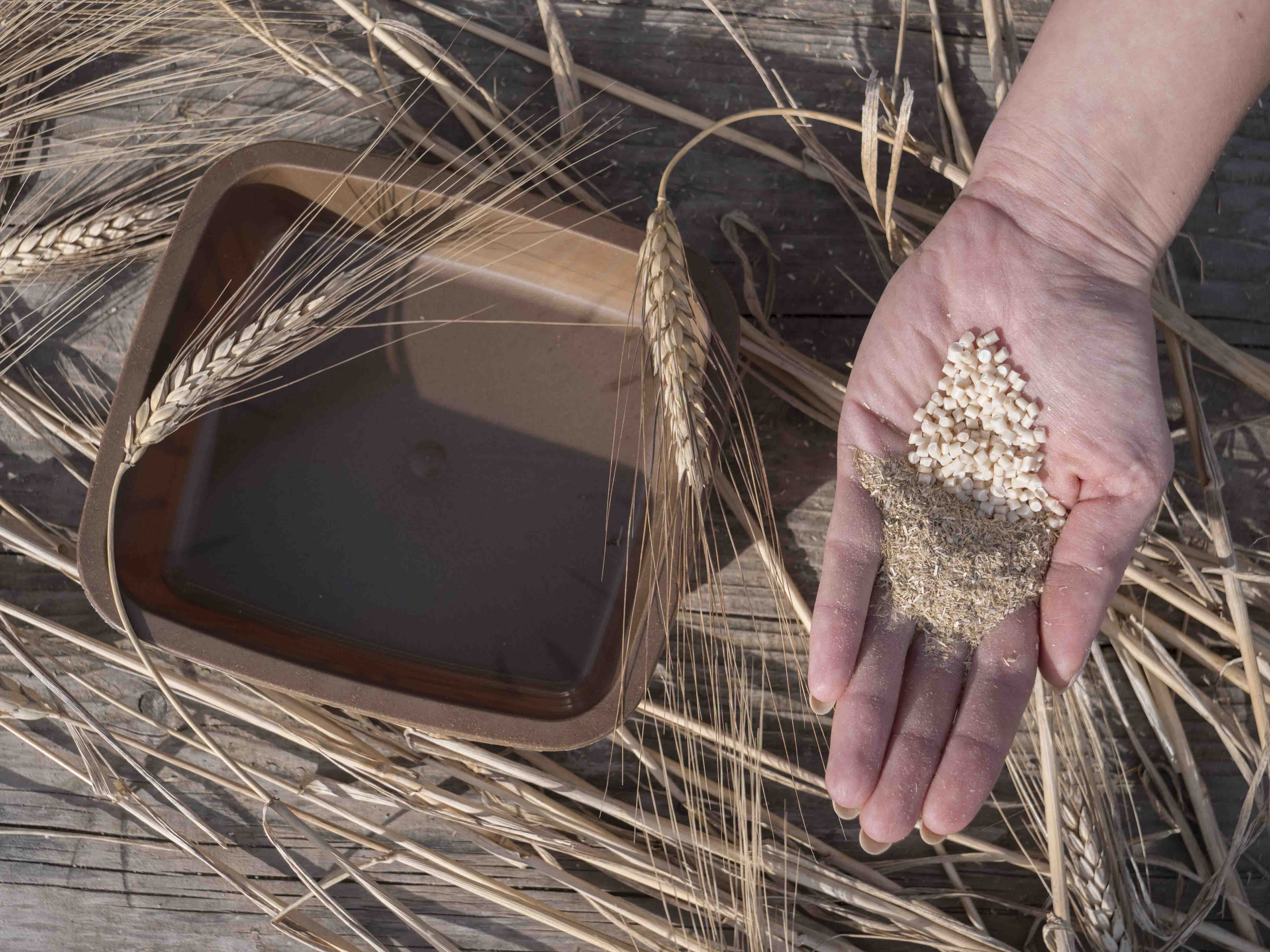Granting society with low environmental impact innovative PACKaging

The EU project GLOPACK aims to produce innovative packaging with low environmental impact by integrating waste from the agricultural and food industry as packaging raw materials into the economic cycle and thus bringing about a sustainable, bio-based circular economy.
PHA as a biopolymer from residues
16 European project partners are developing solutions that are made from fruit processing residues and maize or wheat straw processing residues and thus do not compete with food. The food packaging made from biopolymers can be disposed of in compost, thus reducing the environmental impact of microplastics. The biopolymers, in particular PHAs (polyhydroxyalcanoates), are accumulated as storage substances in bacteria and can be extracted from them. Through special production parameters, a tailor-made PHA can be obtained as copolymer PHBV (polyhydroxybutyrate-co-hydroxyvalerate) with a high valerate content and thus with better properties for the processing and subsequent application. Fractions of wheat straw fibers are produced as fillers.
From biopolymer to packaging – The manufacturing process
As part of the GLOPACK project, Fraunhofer IVV is responsible for the processing and further development of the PHBV polymer to produce packaging for food. Special attention is given to the thermoplastic processing of the PHBVs into a polymer matrix for packaging materials in order to test and demonstrate the functionalities for tray and film applications. The processability of the PHBVs is investigated based on the chemical structure and composition and optimized for production. Furthermore, for a longer shelf life of the packaged food, antimicrobial additives and oxygen-scavenging active systems will also be incorporated into the polymer matrix.
To ensure the safety of the food, the developed materials (pellets and films) and packaging (thermoformed trays or injection-molded cups) are evaluated with regard to their barrier properties against oxygen and water vapor. In addition, we are investigating the mechanical properties and testing the compliance with the EU regulation for food contact materials.
Project term: |
2018 to 2021 |
Project management |
This project has received funding from the European Union’s Horizon 2020 research and innovation programme under grant agreement No 773375. |
Project partners: |
|
 Fraunhofer Institute for Process Engineering and Packaging IVV
Fraunhofer Institute for Process Engineering and Packaging IVV